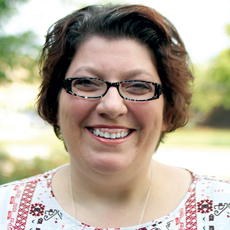
Almost exactly 6 years from the date of our first training, we recently added our 50th home to the Eden Alternative Registry.
Time moves fast when the work is laborious, I have discovered. The first home added was in 2012, Pickett Care and Rehabilitation Center in Byrdstown TN. A few others joined that year as well. It’s fun to think back on how it all started and imagine where we are yet to grow.
In 2012 we had a team of ten people who we dubbed as “The Culture Change Committee.” Those ten people were to help create a strategy for culture change within our rural segment. That team was full of dreamers, people who could see past the four walls of institutional care to help us create a better world WITH our elders.
So we began. People told us that “for profit” healthcare companies could never create a culture of person centered care in the same way that non-profit organizations could. They were wrong. They told us that it would be too “expensive” to align ourselves in this manner. Again, wrong. They warned us that it could never be one. Once again, wrong.
Instead we found a world of opportunity. These 50 homes have hundreds of stories of how their culture change journey has touched the lives of not only Elders but families and stakeholders as well. Here are ten things we learned on this journey that could benefit you today:
- We learned that it wasn’t about rebuilding a perfect building. The beauty of the journey was in the imperfections we had. The existing buildings, not “perfect” in nature became a breeding ground for creativity for our communities. They started converting existing spaces to general stores, cafes, movie theatres and libraries.
- We realized quickly that relationships mattered most. We can do anything when we stand together. We set out to build sustainable relationships in each of our homes. To bind every single person together in such a way that they would be unstoppable. Relationships are the key to culture change. Without then, it can never be sustainable.
- Institutional language must change. As leaders we must set an example for language changes. Everyone will not agree on the words you use, many will question you and some will even boldly laugh at you. Be diligent in changing language. Teach others the reasons why their language should change. There has to be a standard set for the organization so people can hear the changes being made.
- Education, education, education. When we first started, I couldn’t believe how many times we educated on the same topics. Over and over again, we found ourselves educating on what we felt were basic principles of culture change. Education is key to organizational change. Nothing can happen outside of it.
- Resources. We grabbed resources to share from every location we could. We pulled the limited research available on culture change and shared it with our communities. We created pathways for growth. We took hold of every single resource we could locate and refused to let it go. Without resources, we can’t expect our communities to change from an institutional model of care.
- Organizational design must change. The old way of doing things isn’t acceptable any longer. We began to put a neighborhood model into place in which people were forced into learning new and different roles. This promotes growth for everyone on the neighborhood!
- Communication is at the heart of culture change. We can have the best ideas but without a method of communication that works, we are placing ourselves in a hopeless situation. We opened up communication routes through our team huddles which gave everyone a place to give and receive important information.
- We learned to listen to the elder. What I’ve seen in the past several years is that often individuals working in skilled nursing care dream big dreams but forget to dream alongside the elders. It’s not about what WE want. It HAS to be about them or else it is still an institutional program versus a way of life!
- We learned to work as a team. When we let go of silos in the actual nursing home, we realized we had to let go of silos on our regional and senior level teams as well. Today, we work more as a team than ever. How else can you get 50 nursing homes to align in a person directed care model? Each team member plays an integral part in the organization’s success.
- We learned the art of celebration. We understood that each milestone was a reason to celebrate the success of the journey.
Determination and persistence pays off. Growing into a new model of care is not easy and is often like walking a slippery slope. Sometimes you fall down but you always get back up! Dreaming and then putting action steps to those dreams will not only challenge you and your teams but give you rewards beyond what you can even imagine!
Angie McAllister is the Director of Cultural Transformation-Hometown and a Certified Eden Alternative Educator & Mentor with Signature HealthCARE.




